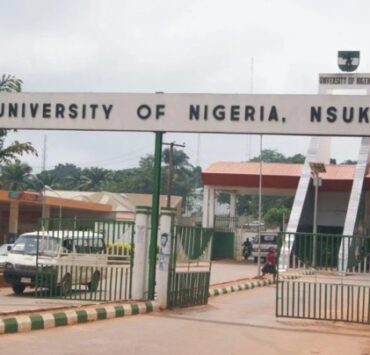Industrial Court Orders Construction Firm to Pay Olocha N1.1m Within 30 Days

Lawyard is a legal media and services platform that provides…
The Presiding Judge, Portharcourt Judicial Division of the National Industrial Court, Hon. Justice Faustina Kola-Olalere has ordered Asphalt and Construction Company to pay Mr. Olocha the sum of N533,200.00 (Five Hundred and Thirty-Three Thousand, Two Hundred Naira) unpaid salaries from August to November 3, 2017, and the sum of N600,000.00 cost of action within 30 days.
However, Justice Kola-Olalere stated that Mr. Olocha has not proved before the Court that he suffered any injustice, psychological and emotional trauma, neither has he satisfied the Court that he was inconvenienced in any way as a result of his employer’s failure to pay his salaries from August to November 3, 2017 when the company formally determined his employment.
From facts, the claimant- Mr. Olocha had submitted that he was an employee of the Construction Company and served diligently and discharged all assigned roles and responsibility to the very best of his ability until the alleged wrongful termination of salaries in June 2017.
Mr. Olocha sought for the sum of N4,142,400.00 (Four Million, One Hundred and Forty-Two Thousand, Four Hundred Naira) unpaid salaries from June 2017 – June 2019 at the rate of N172,600.00 (One Hundred and Seventy-Two Thousand, Six Hundred Naira), and the sum of N5,000,000.00 (Five Million Naira) only being general damage for the unjust, psychological and emotional trauma and inconveniences suffered as a result of the Defendant’s acts.
In defence, the defendant- Asphalt and Construction Company stated that Mr. Olocha was not entitled to any salary from it after the determination of his employment, and counter-claimed for the sum of N124,000,000(One hundred and Twenty-Four Million Naira) only being the total sum of the value of the company’s properties and items allegedly vandalized by Mr. Olocha, and the sum of N10,000,000 (Ten Million) Naira as damages.
Asphalt and Construction Company further averred that upholding the claims for damages for Mr. Olocha will amount to Mr. Olocha benefiting from his own wrong, and urged the court to grant reliefs sought.
In opposition, the learned counsel to Mr. Olocha averred that the issue of the alleged termination of his employment is clearly an afterthought because the issue of dismissal was not mentioned in the company’s letter which was made over 1 month after the alleged dismissal.
Counsel contended that Construction Company had not proved its special damages claim, and the allegations contained in the petition had not been concluded and therefore remain mere allegations.
In a well-considered judgment, the presiding Judge, Justice Faustina Kola-Olalere held that Mr. Olocha’s reply to the Asphalt and Construction Company’s defence and defence to counter-claim together with his evidence in support of the pleadings tendered did not deny the dismissal specifically which amounts to the admission of the fact that the company dismissed Mr. Olocha from its employment with effect from November 3, 2017.
The Court held that Mr. Olocha was paid his salaries up to July 2017 and his employment was determined on November 3, 2017; which means that Mr. Olocha is no longer entitled to salary from the defendant as he has stopped working for the company with effect from November 3, 2017.
On Mr. Olocha’s claim for N5m damages, Justice Kola-Olalere stated that the claimant had not proved before the Court that he suffered any injustice, psychological and emotional trauma, neither had he satisfied the Court that he was inconvenienced in any way as a result of the Defendant’s failure to pay his salaries from August to November 3, 2017, when the defendant formally determined his employment.
Lastly, the Court dismissed the Asphalt and Construction Company counter-claims for lack of proof as no property was proved at all either satisfactorily or even poorly to be vandalized by the claimant before the Court.
Lawyard is a legal media and services platform that provides enlightenment and access to legal services to members of the public (individuals and businesses) while also availing lawyers of needed information on new trends and resources in various areas of practice.













